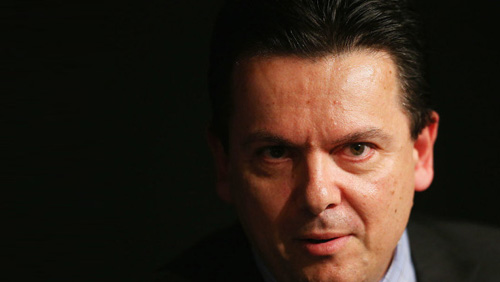Senator Nick Xenophon’s fight to keep gambling ads away from live sports broadcasts in Australia has been all but killed off at the Parliament.
 The three-member Nick Xenophon Team (NXT) recently proposed a bill that seeks to ban gambling ads during live TV sport, establish a national regulator and a national self-exclusion register for people struggling with a gambling habit. That bill, however, was rebuffed by a Senate Estimates Committee, on grounds that such measures were not necessary because the federal government has already introduced reforms, abc.net.au reported.
The three-member Nick Xenophon Team (NXT) recently proposed a bill that seeks to ban gambling ads during live TV sport, establish a national regulator and a national self-exclusion register for people struggling with a gambling habit. That bill, however, was rebuffed by a Senate Estimates Committee, on grounds that such measures were not necessary because the federal government has already introduced reforms, abc.net.au reported.
Xenophon’s bill is different from the Australian federal government’s Interactive Gambling Amendment Bill, which was introduced in 2016 following a review by former New South Wales premier Barry O’Farrell.
The independent senator, who built most of his political career on “tough on gambling” posturing, called the current regulatory framework in Australia “woeful.”
Xenophon is using the ban on betting ads as a bargaining chip in his negotiations with the Turnbull government, which is seeking to water down media ownership laws in Australia.
Several weeks ago, federal authorities revealed plans to significantly slash gambling ads during sports broadcasts in an attempt to win support from the Senate crossbench. But the crackdown on television betting ads is facing resistance from broadcasters, which raked in an estimated AUD120 million (USD92.35 million) from gambling advertising last year. TV broadcasters claimed the only winners from fewer television ads would be Facebook and Google.
Broadcasters and sports betting operators argued against the ban, noting that people under 18 years old “comprise a very small proportion of the audience for live sports events on television.”
Meanwhile, the Responsible Wagering Australia (RWA) is expected to announce a list of concessions to revive the “social license” of the online gambling companies in Australia, which will reportedly include a ban on offering credit to gamblers, removing the “sign-up” offers commonly used to bring in new players, and reducing advertising volume particularly during sports broadcasts.